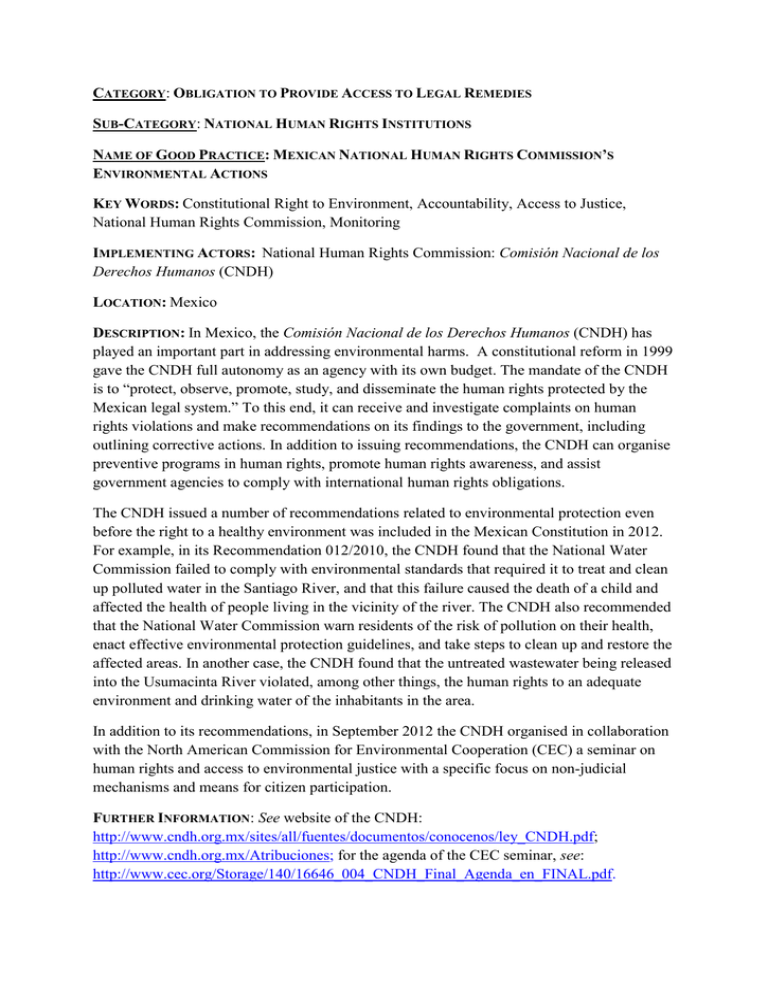C O P A
advertisement

CATEGORY: OBLIGATION TO PROVIDE ACCESS TO LEGAL REMEDIES SUB-CATEGORY: NATIONAL HUMAN RIGHTS INSTITUTIONS NAME OF GOOD PRACTICE: MEXICAN NATIONAL HUMAN RIGHTS COMMISSION’S ENVIRONMENTAL ACTIONS KEY WORDS: Constitutional Right to Environment, Accountability, Access to Justice, National Human Rights Commission, Monitoring IMPLEMENTING ACTORS: National Human Rights Commission: Comisión Nacional de los Derechos Humanos (CNDH) LOCATION: Mexico DESCRIPTION: In Mexico, the Comisión Nacional de los Derechos Humanos (CNDH) has played an important part in addressing environmental harms. A constitutional reform in 1999 gave the CNDH full autonomy as an agency with its own budget. The mandate of the CNDH is to “protect, observe, promote, study, and disseminate the human rights protected by the Mexican legal system.” To this end, it can receive and investigate complaints on human rights violations and make recommendations on its findings to the government, including outlining corrective actions. In addition to issuing recommendations, the CNDH can organise preventive programs in human rights, promote human rights awareness, and assist government agencies to comply with international human rights obligations. The CNDH issued a number of recommendations related to environmental protection even before the right to a healthy environment was included in the Mexican Constitution in 2012. For example, in its Recommendation 012/2010, the CNDH found that the National Water Commission failed to comply with environmental standards that required it to treat and clean up polluted water in the Santiago River, and that this failure caused the death of a child and affected the health of people living in the vicinity of the river. The CNDH also recommended that the National Water Commission warn residents of the risk of pollution on their health, enact effective environmental protection guidelines, and take steps to clean up and restore the affected areas. In another case, the CNDH found that the untreated wastewater being released into the Usumacinta River violated, among other things, the human rights to an adequate environment and drinking water of the inhabitants in the area. In addition to its recommendations, in September 2012 the CNDH organised in collaboration with the North American Commission for Environmental Cooperation (CEC) a seminar on human rights and access to environmental justice with a specific focus on non-judicial mechanisms and means for citizen participation. FURTHER INFORMATION: See website of the CNDH: http://www.cndh.org.mx/sites/all/fuentes/documentos/conocenos/ley_CNDH.pdf; http://www.cndh.org.mx/Atribuciones; for the agenda of the CEC seminar, see: http://www.cec.org/Storage/140/16646_004_CNDH_Final_Agenda_en_FINAL.pdf.